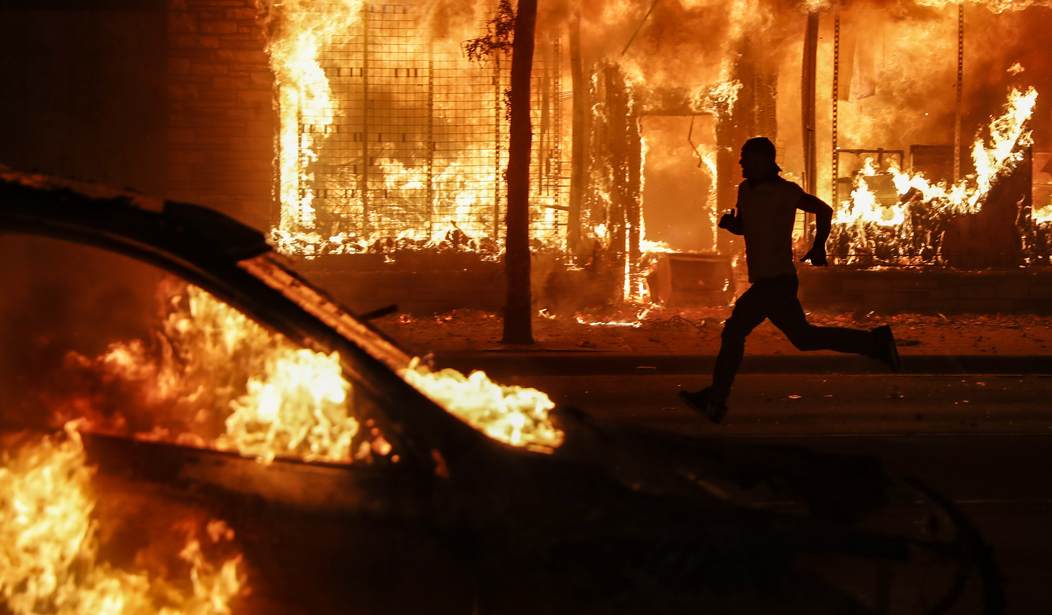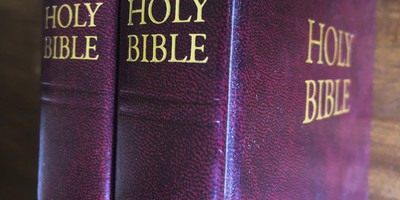Editor's note: This piece was adapted from Robert Orlando's upcoming book, "Karl Marx: The Divine Tragedy."
Part I: The Night That Burned the Future
Five years ago, on this day, America crossed a line from which it still hasn't fully returned. The Minneapolis Police Department's 3rd Precinct was abandoned by order of the governor, and allowed—no, surrendered—to a mob. That night, it was set ablaze. Not symbolically, not metaphorically. It burned in real time, and a public institution was allowed to fall as the cameras rolled. That fire wasn't just wood and concrete. It was a sacrament of collapse—a signal that something deep within the American soul had ruptured.
This moment marked more than a protest. It opened a spiritual wound. While the media told us to see it through the lens of race and police brutality, what erupted was far more primal, more collective, and more dangerous. We witnessed a generation act not just out of grief, or a dying job market, basic home purchases, or college debt, but out of accumulated resentment, entitlement, confusion, and a simmering ideology that had long been brewing in America's academic and cultural undercurrent.
Part II: Marx's Ghost Walks in America
As I watched the flames in 2020, I thought of another firestorm—one ignited over 150 years ago by a man whose name few utter in polite company anymore: Karl Marx. A specter, as he famously wrote, was haunting Europe. Today, that specter haunts America—not in manifestos, but in moods, movements, and the strange righteousness of rage. The mob that torched the 3rd Precinct wasn't reading Das Kapital. But its residue animated them—a worldview that blames the structure, never the soul; the system, never the self.
Marx's core legacy isn't a doctrine—it's a disposition. It's the reflex to deconstruct, delegitimize, and ultimately destroy anything that carries authority, hierarchy, tradition, or transcendence. And it has metastasized. We now have the identitarian revolt in place of the workers' revolution. Where Marx diagnosed class struggle, today's revolutionaries cry out in the name of race, gender, and grievance. The diagnosis has shifted, but the treatment remains the same: burn it down.
Recommended
Part III: The Conflagration Was Coming
The burnings of 2020 were not spontaneous. They were the inevitable climax of a generation taught that America is not just deeply flawed but fundamentally evil. That capitalism is not just unfair but irredeemable. That power is always abused, and truth is just a mask for domination. Into that mix came COVID, economic anxiety, and isolation—but the ideological tinder was already there. What lit the match was not police violence per se. It was a spiritual vacuum long prepared by post-Marxist resentment.
When Governor Tim Walz ordered police to stand down(his wife famously said she loved the smell of burning tires), he wasn't de-escalating. He was surrendering the legitimacy of the state to ideological chaos. It was a failure of leadership, yes. But it was also more revealing: the symbolic retreat of Western order in the face of ideological rage. Dante's Inferno was playing out in real time, without Virgil to guide us.
Part IV: The Divine Tragedy Repeats
In my book Karl Marx: The Divine Tragedy, I asked a simple question: Would Dante have placed Marx in Hell? The answer—I explored whether Marx created his hell—was not because Marx was evil but because he summoned forces he could not control. He wanted justice but sowed vengeance. He rejected grace and found only bitterness. He imagined a new Eden and helped birth new exiles.
Marx was no devil, but he was no saint either. He was a prophet of destruction, consumed by a vision that offered no path to redemption. The 2020 riots—and the burnings, lootings, and collapses that followed—were not the consequences of one bad cop or one unjust law. They were part of a larger descent into a worldview that sees destruction as cleansing, rage as virtue, and enemies as sacred targets.
Part V: A Flame That Still Smolders
Today, we must ask: What did we learn from the night the police station burned? Some learned to fear speaking the truth. Others knew they could act with impunity. But the most profound lesson is spiritual: We are a civilization that no longer believes in its foundations. That, above all, is the tragedy Marx helped write—and we keep re-enacting.
There is a better way—one that doesn't deny injustice but doesn't sanctify vengeance. One that allows space for reform but not at the cost of civilization itself. The Divine Comedy offered a map out of Hell, but Marx offered only a tunnel deeper into it.
As the flames of 2020 continue to flicker in our politics, our streets, and our souls, we are left with this question: Will we descend further, or begin the climb back toward light?
Robert Orlando is a filmmaker and author of Karl Marx: The Divine Tragedy

























Join the conversation as a VIP Member